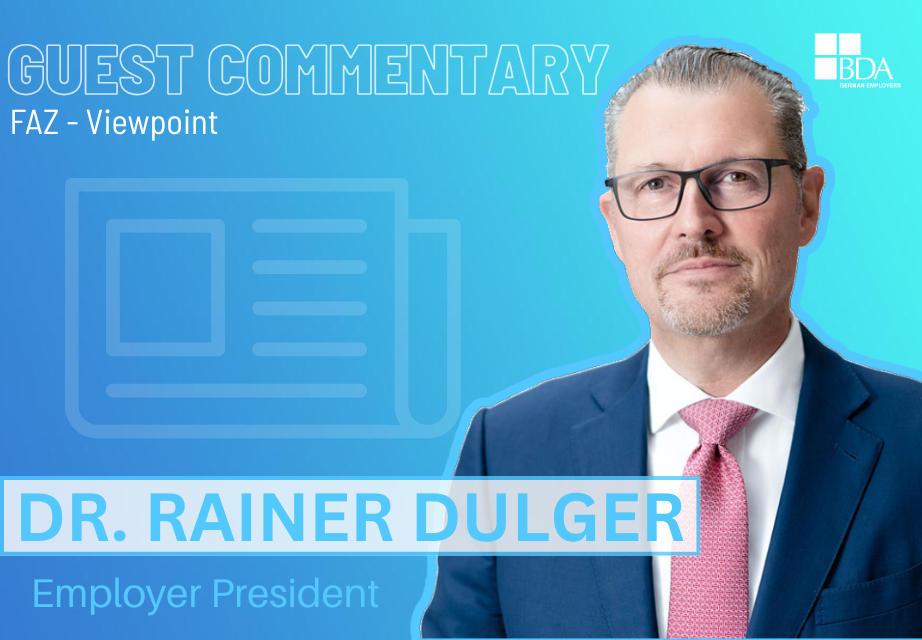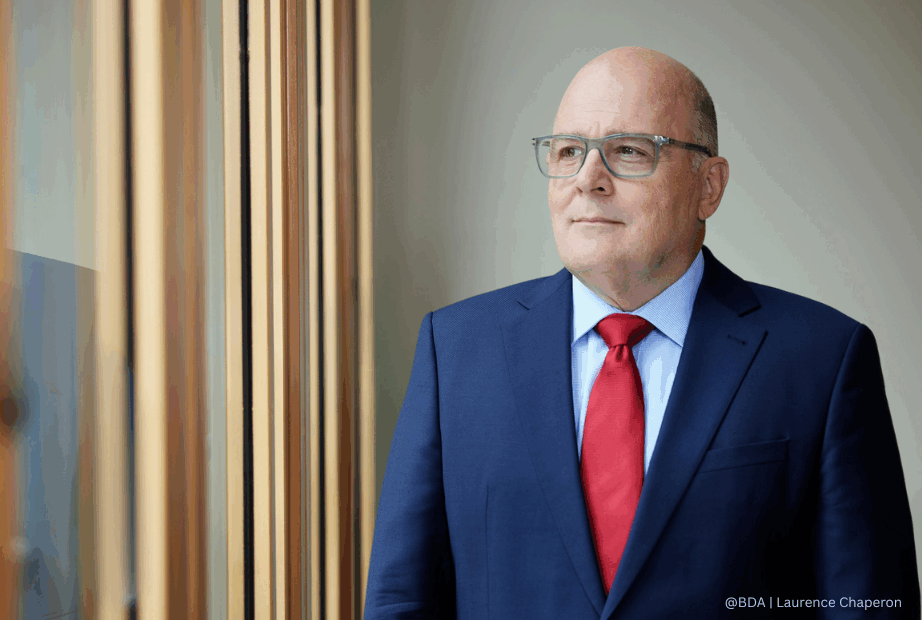- TOPICS
-
-
- Employment and Labour Market
- Labour law and collective bargaining policy
- General applicability
- Industrial action
- Labour & collective bargaining law
- Working time
- Time limit
- Works Constitution
- Bureaucracy reduction
- Data protection
- Protection against discrimination
- Parental leave
- Posting
- Insolvency
- Protection against dismissal
- Minimum wage
- Co-determination
- Mobile work
- Maternity protection
- Pandemic
- Care time
- Self-employment
- Tariff autonomy
- Collective Bargaining Agreement
- Collective bargaining unit
- Tariff policy
- Collective bargaining
- Collective agreement
- Part-time work
- Restructuring
- Holiday law
- Contracts for work
- Whistleblowing
- Temporary work
- Education and vocational training
- Training market
- Professional orientation
- Education policy
- Education 4.0
- Dual education
- dual study
- Permeability
- Early childhood education
- Higher Education Funding
- Lifelong learning
- Teacher Education
- Reorganization of education and training
- STEM Professionals
- Economic education
- Accreditation/Quality assurance
- SCHOOLBUSINESS Germany
- Digitalization and innovation
- Europe and International Affairs
- Social policy and social security
- Old-age poverty
- Work made in Germany
- Occupational safety
- Contribution and registration law
- Company pension scheme
- Shortage of company doctors
- Health insurance
- Long-term care insurance
- Mental health
- Pension insurance
- Riester pension
- Social self-government
- Social insurance
- Accident insurance
- The future of social security
- Taxes & Finances
- Economy & Society
-
-
-
- Newsroom
- The BDA
- Members

Get to work and create jobs

Why rising unemployment won't cure the skills shortage - and why work has to pay again
By employer president Dr. Rainer Dulger
We are in the third year of the recession - and the labor market has also cooled noticeably. Unemployment has been rising since 2022, and this summer the 3 million mark could be broken again. The customs dispute with the USA is creating additional strain and uncertainty for the economy and the labor market. At the same time, Germany needs more jobs in times of demographic change. Sounds paradoxical - and that's why it's so difficult to get through with arguments. Why should people forgo early retirement without deductions or work more when others can't find a job and the constantly rising social security contributions mean that they have less and less net income anyway?
The economic slowdown is not solving the staff shortages - it is exacerbating them. It increases the challenges facing the labor market and demands that we do not confuse the current situation with the future. By 2036, 19 million baby boomers will reach retirement age. They represent a quarter of all employees. No amount of technology will be able to compensate for the resulting demand for labor.
Against this backdrop, key political questions arise: How do we bring the unemployed and employers together despite changing requirements? What does this mean for active labor market policy and further training? How do we avoid long-term unemployment? And how do we ensure that securing jobs and skilled workers remains at the top of the political agenda?
A look at the unemployed and employed shows: Structural change is rapidly transforming jobs. What jobseekers bring to the table increasingly rarely matches what companies are looking for. The longer the current weak phase lasts, the more entrenched unemployment becomes - and the more difficult it is to get people back into work. That's why the motto is: place, place, place. There are opportunities: perhaps not directly on site, not in the same sector or not at the usual salary.
Especially in this situation, the right framework conditions are needed: Work must be worthwhile - and the state must keep a sense of proportion. Every additional hour of work must be reflected in your wallet - that motivates you and makes you want to work more. At the same time, every jobseeker must be required to participate. Companies, in turn, must work together more closely in networks to enable direct transitions between companies. Expensive incentives for early retirement, such as the so-called "full retirement at 63", must not continue to deprive the labor market of urgently needed workers. More daycare centers and all-day schools must enable parents to work more hours.
Employers currently have to cope with stagnation and uncertainty. Many are acting cautiously: it is better to keep existing employees for whom there is no replacement than to hire new ones. Reliability and trust in the location are needed here - then the willingness to hire will also increase. But that is only half the battle. Employers need to become more flexible: The perfect specialist will become increasingly rare - precisely because requirements are changing faster than ever before. On-the-job qualifications - ideally on-the-job - help to ensure that further training is tailored to the individual.
The shortage of labor and skilled workers is at the top of the political agenda. The upheavals are too far-reaching to sit them out. More work must not be a taboo subject. We need more flexibility, more net from gross and a better childcare infrastructure. Immigration into employment can help to close gaps. If the government hesitates now, it will continue to reap stagnation later. After all, no country can grow without people who get to work.
You can read the guest article in the FAZ from 28.7.2025.






